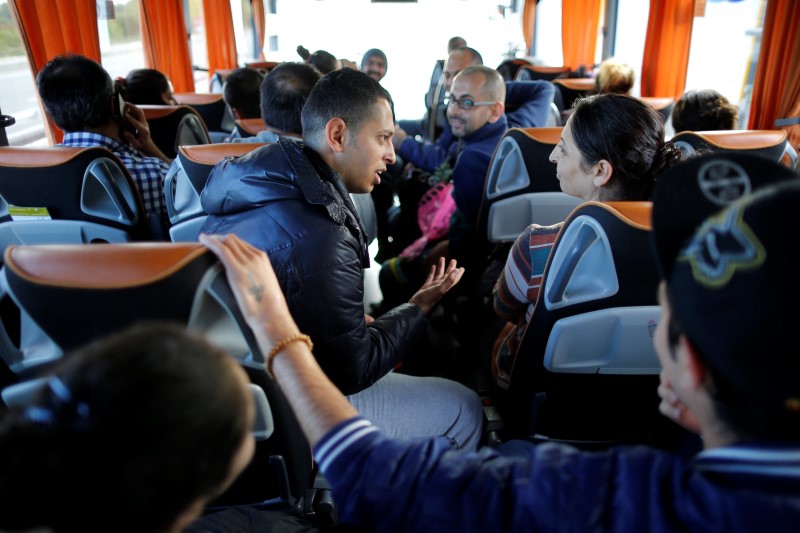By Mourad Guichard
PARIS (Reuters) - A Syrian Christian family targeted by a September bomb attack in Damascus flew into Paris on Friday to start a new life, roughly a year after they requested entry visas from the French authorities.
Amid cackles of joy and relief, 15 family members embraced each other and the people there to welcome them when they stepped off the plane from Egypt.
Their final destination is Le Mans, a city of 150,000 people about an hour's train ride west of Paris and perhaps best known for the 24-hour car race it hosts each year, and for a pork paste food specialty called Rillettes du Mans.
Among those awaiting them in Le Mans is doctor Milad Aleid, a relative who settled in France years ago and who worked with the city's mayor to support their visa applications.
After going unanswered for months, the requests were rapidly expedited after a bomb attack in Damascus killed 11 people and injured more than 70 on the night of Sept. 11-12, one of them a family member who sustained serious eye and head wounds.
In all France granted 21 three-month stay visas, covering the 15 who arrived at Charles de Gaulle airport on Friday and another six who, fearing for their lives, "couldn't bear the wait," said Khaldoun Aleid, one of the group at the airport and a nephew of the doctor.
Religious figures in Le Mans, as well as the Syrian doctor relative and city mayor Jean-Claude Boulard, campaigned for months to secure visas, arguing that the family was in danger because they were members of the Christian minority.
Some 250,000 people have been killed in mostly Muslim Syria since disparate rebel groups -- among them Islamic State and al Qaeda factions -- went to war almost five years ago against President Basher al-Assad.
As the Syrian family arrived, President Francois Hollande and Russian President Valdimir Putin were meeting in the French capital to broach deep differences over Syria, above all demands by France and its Western allies -- rejected by Moscow -- that Assad relinquish power.
About half of a population of close to 23 million has been uprooted since the war began, with European leaders struggling to respond, hampered in part by voter concerns about the biggest refugee influx since World War Two.
In traditionally Catholic France, a secular country which is also host to Europe's largest Muslim and Jewish populations, the conflict in Syria and the Middle East more generally has raised fears for the fate of Christian minorities.
Socialist Hollande also has to contend with political foes who say France cannot afford a wave of migrants who will need France's relatively generous public welfare, healthcare and housing.

But greeting the new arrivals on behalf of Le Mans city, deputy mayor Yves Calippe, part of the welcoming committee at Charles de Gaulle airport, told the 15 Syrians: "You can count on us. Now we are going to prove we can all live together."